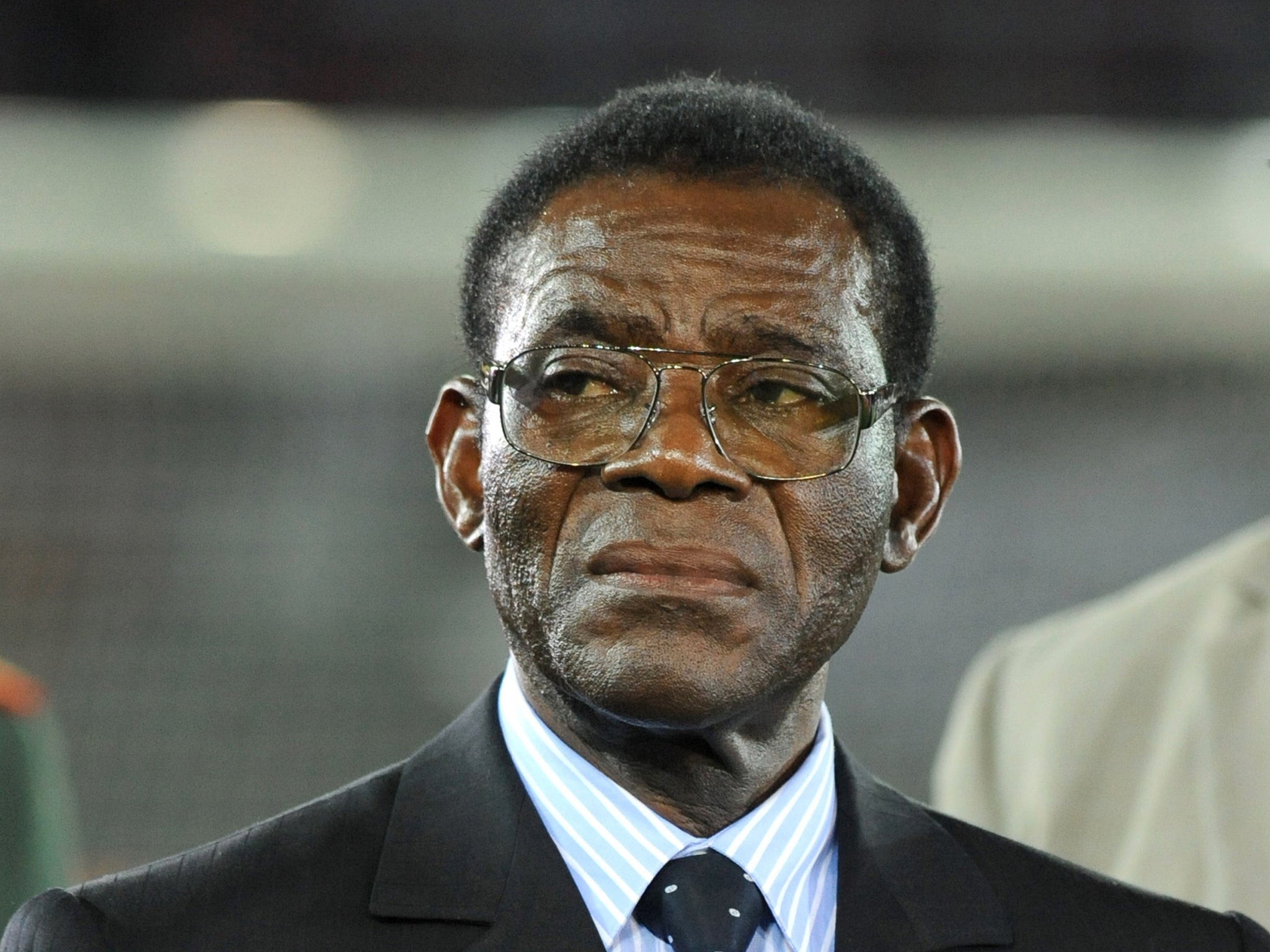Africa's longest-serving president poised to extend 37-year rule
Teodoro Obiang took more than 95 per cent of the votes in the last election in 2009

Equatorial Guinea President Teodoro Obiang, Africa’s longest-serving leader, is poised to extend his almost 37-year rule over the oil-rich nation in elections on Sunday that the opposition and observers say won’t be free.
Obiang, 73, will probably win by a landslide because he controls every aspect of the government and society, said John Bennett, the former U.S. ambassador to the West African nation from 1991 to 1994. Obiang captured more than 95 per cent of the votes in the last election in 2009. He faces six opponents.
“He has managed to keep power in his hands,” said Bennett by phone from Springfield, Virginia. “The election is held at his whim and it’s a government by his whim.”
Activists and opposition leaders from Democratic Republic of Congo to Rwanda and Burundi have opposed moves by lawmakers to extend term limits in those countries in the past year, sparking violence in some cases and shining a spotlight on democracy in Africa. Presidents in Rwanda, the Republic of Congo and Djibouti also have demonstrated their resolve to cling to power, while protesters in Burkina Faso forced President Blaise Compaore out of office in 2014 after he sought to prolong his 27-year rule.
Roman Obama Ekua, a spokesman in the Equatorial Guinea embassy in Washington, didn’t immediately reply to e-mailed questions.
Freedom House ranked Equatorial Guinea as the 11th most oppressive country in the world, with a rating shared by countries like Syria, Somalia and North Korea, in its latest annual index. Obiang came to power in 1979 through a coup, overthrowing his uncle, and became president in elections three years later.
He oversaw the country’s first oil discovery in the 1990s and the bonanza from production, which has dropped from a peak of 358,000 barrels per day in 2005 to 281,000 barrels in 2014, according to the BP Statistical Review of World Energy. U.S.-based companies including Marathon Oil Corp. and Noble Energy Inc. operate there, according to their websites, and the country also produces liquefied natural gas.
For all of the wealth that natural-resources generates, the country remains one of the world’s poorest with three-quarters of its fewer than 1 million people mired in poverty. Crude exports account for 80 percent of gross domestic product and the price lull caused the economy to slump by 9.5 percent last year, according to the International Monetary Fund. The economy will probably contract or barely grow for the medium term, it said.
The U.S. Department of Justice in 2014 said it reached a settlement with Teodoro Nguema Obiang Mangue, the Equatorial Guinea president’s son who is seen as his potential successor, forcing him to relinquish assets worth $30 million that he purchased in the U.S. “with the proceeds of corruption.”
Under the deal’s terms, Teodoro Nguema, who is the country’s second vice president, had to sell a $30 million mansion in Malibu, California, a Ferrari and various items of Michael Jackson memorabilia. It also ordered that certain other assets of his, including a Gulfstream Jet, would be subject to seizure and forfeiture if they are brought into the U.S.
The elections have no chance of being free and fair, Severo Moto, the exiled leader of the main opposition Progressive Party of Equatorial Guinea, said by phone. His party is banned and Moto said his name won’t be on the presidential candidate ballot.
"The oil is only for the Obiang family," said Moto by phone from Madrid. “No one can win this election but Obiang. He has made sure he was the winner before, the winner during and the winner after the election.”
Copyright: Bloomberg
Join our commenting forum
Join thought-provoking conversations, follow other Independent readers and see their replies
Comments
Bookmark popover
Removed from bookmarks